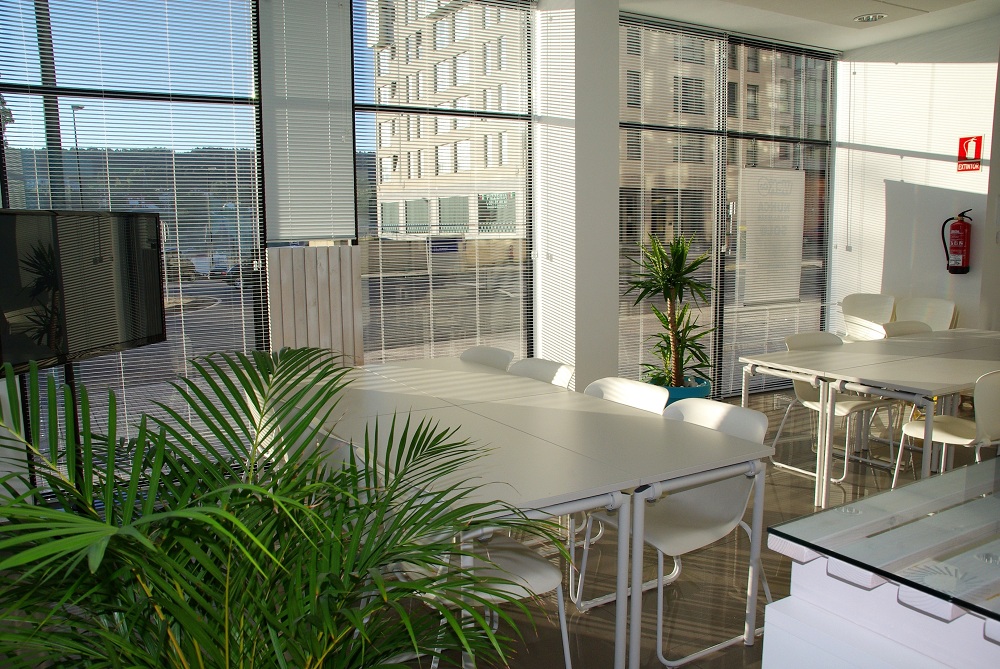With the world shifting to a more eco-friendly mindset, it’s important for businesses to adopt environmentally friendly policies. While large companies like Wal-Mart or Target have the funds to invest in alternative energy programs, small businesses might balk at the price tag of going fully green.
Although it does take a lot of money to invest in renewable energy and sustainable technology, small businesses can still adopt small changes that can have a large impact in the world. Here are small changes your office can do to be greener:
Create a Sustainability Study Group in the Office
One of the first steps to going green is to learning as much about it as possible. By creating a sustainability group in your office, you can research small ways into being more eco-friendly without taking up too much manpower. Sustainability groups have the double benefit of both raising awareness and implementing policy changes.
Task this group with studying your company’s current practices to find sustainability problems and implement solutions. These don’t have to be big; it can start with a simple recycling program, or reminding people to switch off lights in unused rooms, or even suggesting alternative products for office use.
Getting the ball rolling is one of the most important steps into going green. Your sustainability group can also hold conferences and meetings for all the employees so that everyone in the company is aware of the green initiatives they have planned. Remember: knowledge is power, and the more people know about how to be sustainable, the more positive impact your company can make in the long run.
Set Monthly Green Quotas
 Practicing sustainability is more effective when done as a group. To encourage each department to be more sustainable, create monthly green quotas for teams to meet. These quotas are a fun way to get everyone involved especially if there are prizes.
Practicing sustainability is more effective when done as a group. To encourage each department to be more sustainable, create monthly green quotas for teams to meet. These quotas are a fun way to get everyone involved especially if there are prizes.
The prizes don’t necessarily have to be big, just a token of appreciation for the effort that team put in. You’d be surprised at how much more effective a reward system is compared to penalizing those who don’t meet the quota.
Turn Off Unused Electronics, Especially at Night
One of the biggest passive drains to a company’s funds is the monthly power bill. Find ways to save on electricity by switching off unused devices, especially at night. It can be tempting to leave work computers on to save on time booting them up in the morning, but the power they consume during the night can add up and become an unnecessary expenditure.
Institute an “all devices off at log out” policy throughout the office. Turn off all lights (save for one or two) during the night. Make this a part of your monthly green quota and reward departments who follow this policy strictly.
Switch to Green Office Products
 While going fully sustainable can be a bit expensive, swapping out certain office products for more eco-friendly ones can actually save you money in the long run.
While going fully sustainable can be a bit expensive, swapping out certain office products for more eco-friendly ones can actually save you money in the long run.
These products can range from energy-efficient appliances to all-natural cleaning products. Electronics with the “energy star” sticker normally use up less energy than devices without, while all-natural cleaning products can effectively sanitize your office without the use of harmful chemicals.
Moreover, these products tend to last longer and are designed to be recycled once you’re done with them. In this way, your company can help reduce the amount of hazardous waste that businesses create.
Invest in Renewable Energy
At the moment, renewable energy is still in its infancy, meaning that the technology that makes them possible can be expensive. However, small businesses don’t have to go fully renewable to make an impact; even just investing in a couple of solar panels can help you save money and lessen your reliance on harmful petroleum products.
Certain states also reward businesses that purchase green energy from renewable suppliers. This green energy is usually priced at competitive rates and is better for the environment.
But if your company can afford it, try to find ways to wean your office away from gas or coal-powered energy. The tax breaks alone can help pay for the initial investment, while the monthly savings can help you turn a profit in the future.
Stay Cool and Warm Naturally
 It can be tempting to blast the AC during the summer months, and while it’s not necessarily a bad thing, this can add to your monthly expenses. To avoid this without turning your workplace into an uncomfortable sauna, agree on setting your thermostat at a specific temperature.
It can be tempting to blast the AC during the summer months, and while it’s not necessarily a bad thing, this can add to your monthly expenses. To avoid this without turning your workplace into an uncomfortable sauna, agree on setting your thermostat at a specific temperature.
Alternatively, if your building’s architecture allows it, open your windows and allow the natural breeze of the outside to cool down the interior.
Shift to a Paperless Business
With the world relying more and more on digital technology, paper is fast becoming obsolete. And not a minute too soon; a recent study by economists show that paper waste accounts for 10% of landfills in the country.
Not to mention, maintaining a paper system requires you to have bulky storage like filing cabinets and requires the use of other office supplies like paper clips, staplers, pens, and so on.
By going fully paperless, you save on these expenses while helping the planet. Moreover, digital documents are more secure than paper ones, and storing them requires less physical space.
Make Your Office More Green (Literally)
 You’d be surprised at how much indoor air quality can improve with the placement of a few plants around the office. Not only does this clean up the air, it also makes for a more aesthetically pleasing vibe.
You’d be surprised at how much indoor air quality can improve with the placement of a few plants around the office. Not only does this clean up the air, it also makes for a more aesthetically pleasing vibe.
Cleaner air means less people will fall sick due to respiratory problems, saving you the expense of paying for medical bills and reducing the amount of absenteeism. Besides, clean air means healthier employees, which means a happier and more productive workforce.
Use Natural Light
Utilizing your office’s natural light doesn’t just help you save on energy expenses; it also makes your employees more productive. A study by the World Green Building Council shows that employees that receive more natural light via sunlit windows are actually 15% more productive than employees in artificial light.
This is because natural sunlight helps regulate our body’s circadian rhythm and synthesizes vitamin D. Artificial light can disrupt these essential functions and make people feel groggy, cranky, and unproductive. As much as possible, use natural light when you can, and try to set your lights to turn on only at a specific time during sundown.
There are many more ways for company’s to go green without implementing large-scale and expensive solutions. What ideas do you have for your office to be more green? Hit us up in the comments below!

